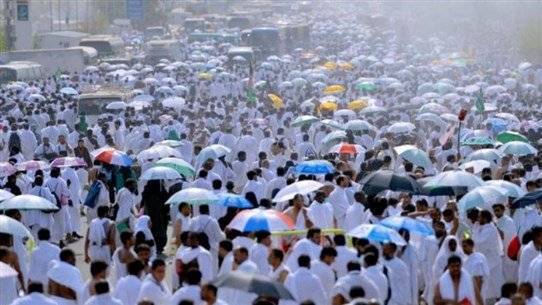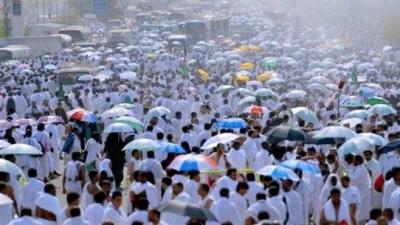This year, there has been a notable decline in the number of pilgrims from Lebanon to the Holy Mosque in Saudi Arabia, contrary to expectations after a two-year halt due to the COVID-19 pandemic, which imposed strict restrictions to prevent the virus from spreading in the world’s most crowded place during just a few days. The financial burden has also made it difficult for many to make the pilgrimage.
The reasons for this decline are varied, including the economic and financial crisis that has plagued Lebanon for years, the high cost of pilgrimage calculated in US dollars, global inflation, and increased airfares across all airlines. Additionally, the mandatory services and the value-added tax in Saudi Arabia have risen from 5% to 15%. The number of pilgrims has fallen from about 8,000 to only 2,600 this year.
This decline is particularly evident in Sidon, which is known for its numerous pilgrimage campaigns. Most of these campaigns have not organized trips as usual before the pandemic. Sheikh Khaled Arifi, a guide from the "Israa" campaign, confirms that numerous factors contributed to this, primarily the economic and health situations, in addition to the refusal to accept applications from pilgrims over 65 years old due to concerns about them contracting the virus and spreading it among the pilgrims.
He explains that the cost of pilgrimage in previous years was about $4,000, equivalent to nearly 6 million Lebanese pounds. However, today the minimum cost has reached $5,000 and may rise slightly to around $6,000, which exceeds 150 million Lebanese pounds — a burdensome amount compared to the unchanged salaries of Lebanese citizens.
He further indicated that those who managed to go this year had saved part of the amount over the past years during the COVID-19 pandemic when pilgrims were not accepted from outside Saudi Arabia or had family abroad who supported them in US dollars to cover the remaining amount. Many would-be pilgrims contracted the virus, and some died, particularly among the elderly, or suffered from its negative repercussions. The Kingdom has also restricted pilgrims to those under the age of 65 this year compared to previous years.
The issues are not limited to just the economic and health situations; they are also connected to increased costs of mandatory services (like accommodations, catering, and transportation), along with new mandatory services (emergency services, health insurance, and visa fees), along with the increased value-added tax in Saudi Arabia from 5% to 15%.
Sheikh Ali Al-Yousif, a guide from the "Rawabi Quds for Hajj and Umrah" campaign, states that the total number of pilgrims who left Lebanon is 1,150 from the Sunni sect, 1,150 from the Shia sect, and about 300 Palestinians, totaling around 2,600 pilgrims. In the past, the number would exceed 8,000, sometimes reaching 10,000 with social pleasantries. The reasons are many, primarily the financial distress and increased service costs.
He indicates that each pilgrim whose application was accepted had to pay about $1,800, which has now risen to $4,000, an increase of over 120% due to global inflation and economic stagnation.
Al-Yousif confirms that many campaigns found themselves unable to organize trips this year due to the small numbers, resulting in some starting with low numbers or coordinating with other campaigns. It is noteworthy that the services remained the same in Mecca, Mina, and Arafat, while the rental of buildings did not increase, and pilgrims were divided into multiple rooms to prevent overcrowding.
This year’s pilgrimage season extends from July 7 to 12, with Friday being the day of standing at Arafat, considered the largest pilgrimage moment where the guests of Allah perform rituals before moving to Muzdalifah and then Mina. They will throw stones over a span of three days, coinciding with Eid al-Adha on Saturday.
Maryam Habal expresses that she had dreamed of performing pilgrimage this year, but the cost prevented her from achieving her dream, saying, “People now prefer to prioritize food and drink amid the severe living crisis, considering that pilgrimage is one of the five pillars of Islam, but its rituals are not obligatory for everyone, rather for those who are able.”
Some residents in Lebanon continue to provide sacrificial animals, but this year saw astronomical increases in their costs, with the price of a sheep nearing $300, while a cow costs no less than $1,700 and can be divided among seven people, with its meat distributed in thirds: to the owner, to family and relatives, and to the poor, bringing joy to their homes.




